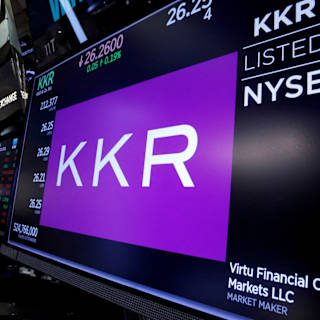- Deal Terms Signal Premium Valuation
- AI Transformation Drives Strategic Logic
- Deal Revives After Stalled Talks
French consulting giant Capgemini agreed Monday to acquire business process outsourcing firm WNS Holdings for $3.3 billion in cash, marking one of the largest deals in the sector as companies race to transform traditional back-office operations with artificial intelligence.
The acquisition, announced after months of on-and-off negotiations, positions Capgemini to capitalize on what executives describe as a paradigm shift toward AI-powered business services that could reshape how enterprises manage their operations.

Under the agreement, Capgemini will pay $76.50 per WNS share, representing a 17% premium to the stock's closing price on July 312. The transaction received unanimous approval from both companies' boards and is expected to close by year-end, subject to regulatory approvals1.
The deal will boost Capgemini's normalized earnings per share by 4% in 2026 and 7% in 2027 after synergies, the company said1. Capgemini forecasts between 100 million and 140 million euros in revenue synergies and annual cost synergies of 50 million to 70 million euros by the end of 20271.
To fund the acquisition, Capgemini secured 4 billion euros in bridge financing, using 1 billion euros in cash and the remainder through debt issuance2.
The acquisition centers on what Capgemini calls "Agentic AI-powered Intelligent Operations," a technology approach that could replace traditional labor-intensive business process services12. WNS brings expertise in business process outsourcing and data analytics, serving major clients including Coca-Cola, T-Mobile, and United Airlines23.
"Capgemini's acquisition of WNS will provide the group with the scale and vertical sector expertise to capture that rapidly emerging strategic opportunity created by the paradigm shift from traditional business process services to Agentic AI-powered Intelligent Operations," CEO Aiman Ezzat said1.
WNS reported $1.27 billion in revenue in fiscal 2025 with an 18.7% operating margin, growing at an average rate of 9% annually over the past three fiscal years1.
The announcement caps months of negotiations that began in earnest this spring. Bloomberg reported in April that Capgemini and WNS were in advanced talks, but by late May reported that discussions had stalled amid market volatility12.
WNS, which traces its origins to British Airways' 1996 Mumbai subsidiary before being spun out as an independent company in 2002, had been working with JPMorgan Chase to evaluate potential suitors3. The company's client base and operational expertise in cost-effective offshore delivery made it an attractive target for firms seeking to expand their AI capabilities in business process services.



